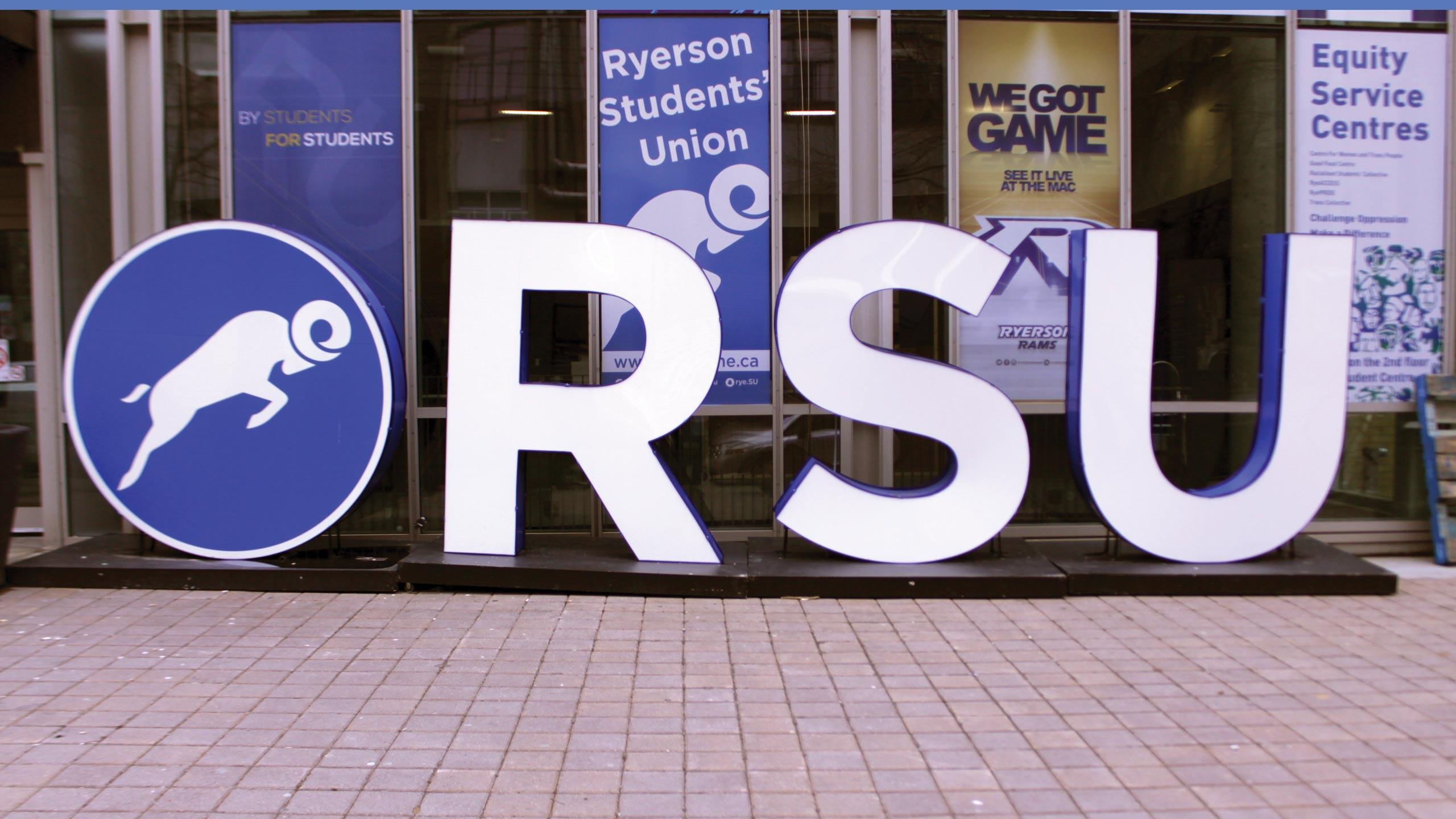By Heidi Lee, Thea Gribilas and Sarah Tomlinson
On Sept. 30, our news team attended the Ryerson Students’ Union’s (RSU) monthly Board of Directors’ (BoD) meeting, only to find it had been cancelled as they failed to meet quorum.
When we got into the meeting, there were 12 people on the call, including the three of us. (For reference, there are 25 BoD members.) According to section 8.1 of the RSU bylaws, at least half of the BoD must be in attendance for the meeting to proceed, meaning less than 13 paid board members attended.
It wasn’t the first time a BoD meeting was cancelled for this reason. We encountered the same thing on May 1 at the RSU Annual General Meeting, which failed to see 100 students attend, meaning the meeting was abruptly adjourned.
In recent months, the RSU has not only failed to meet quorum, but they’ve also neglected to inform us and the community in advance of BoD meeting dates and agendas.
We could resent the RSU for their lack of communication. However, we’ve also become accustomed to this long-standing culture of apathy from the greater Ryerson community.
Journalism’s function is to hold power to account. Yet, holding institutions accountable is a responsibility for all—this includes students, faculty and community members at Ryerson—and our collective inaction makes us complicit.
Students have a lot on their shoulders. With stress from studies, part-time jobs, taking care of our mental health and balancing life, we understand you might not have the time and energy to keep an eye on politics at Ryerson 24/7. But these issues intertwine with your student life too heavily for you not to care.
With control over students’ money, the RSU has also failed to be transparent in their budgeting process. They decreased funding for campus groups by $70,000 and course unions by $44,000, while increasing funding for executive training. In addition, $900,000 in surplus from last year’s budget has yet to be accounted for in their current budget and there has been no answer as to why.
At a town hall on May 11, the union announced they weren’t pursuing legal action against students involved in the RSU credit card scandal.
This took place in 2019 when financial statements showing more than $250,000 in food, alcohol, clothing and club purchases that were made with RSU credit cards under the names of executives were made public and reported on by The Eyeopener.
Their reasoning was that the cost of litigation would be greater than what the RSU had the potential of recovering. What they didn’t explain, however, was why they were setting the precedent that RSU members could commit such flagrant misconduct without fear of prosecution or retribution.
Students had chances to create change, we just didn’t take them. Back in 2019, no one showed up to the RSU town hall that was set to discuss transparency and the future of the union.
Additionally, voter turnout gets lower in each RSU election. Current RSU president Siddhanth Satish won the election with 1,017 votes in a school with over 35,000 students.
If we truly hope for a brighter future, we need to speak up when institutions at Ryerson act in a manner that doesn’t represent students
But the RSU isn’t the only problem—Ryerson itself isn’t free of these issues either.
Intended as steps toward reconciliation, Ryerson decided to change its name and introduced a renaming advisory committee. Our communities editor Mariam Nouser reported this week that out of the 17 members on the advisory committee, only two are Indigenous, according to a student representative.
When we asked Ryerson president Mohamed Lachemi about this, he said that number was inaccurate. But, ultimately, the number is irrelevant as the university needs to be prioritizing Indigenous perspectives on an issue that affects them most.
The school should be working to foster an environment where Indigenous voices are elevated in the consultation process, and the fact that an Indigenous student on the committee is already raising concerns of tokenization means Ryerson has failed to do the bare minimum when it comes to reconciliation.
Ryerson has also consistently refused requests to publicize COVID-19 numbers on campus. This should be an easy way to ensure transparent communication and student safety, however, citing privacy concerns, they have continually refused to disclose more details.
We don’t know how a lump sum of COVID-19 cases is a breach of privacy, but do know that transparency lies in the interest of students—especially where their health is concerned.
Once we overcome our political fatigue and sense of helplessness, we can, in fact, build a campus community we can be proud of.
In The Power of the Powerless, Václav Havel questioned if “the brighter future is really always so distant.”
“What if, on the contrary, it has been here for a long time already, and only our own blindness and weaknesses has prevented us from seeing it around us and within us and kept us from developing it?” he wrote.
If we truly hope for a brighter future, we need to speak up when institutions at Ryerson act in a manner that doesn’t represent students.
To do so, we need to carve out some time and use our voices to pressure our institutions into ones that serve us. It doesn’t have to be a lot of work—any amount of effort helps.
But by remaining silent, we are all complicit in their mediocrity.












Daniel Lis
As a Czech, I appreciate the Vaclav Havel shoutout but pity the journalist who had to read this in Dutil’s POG 100 class.